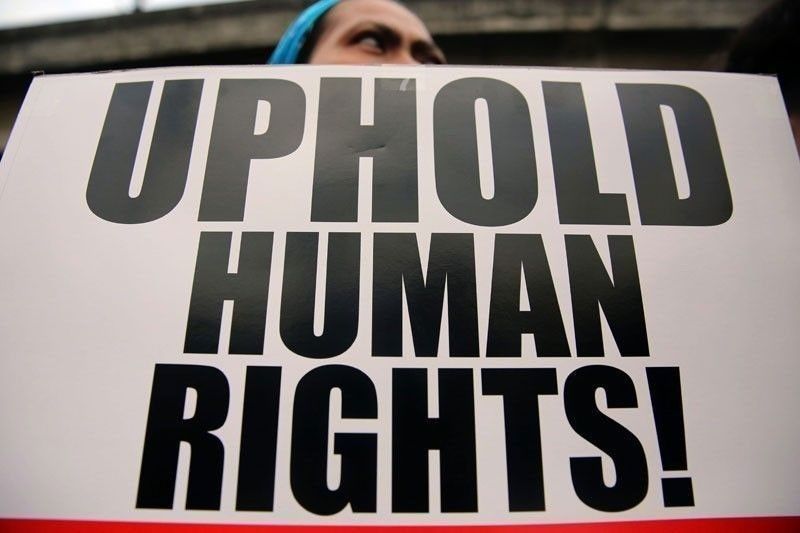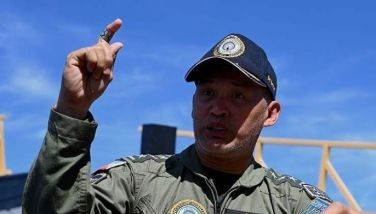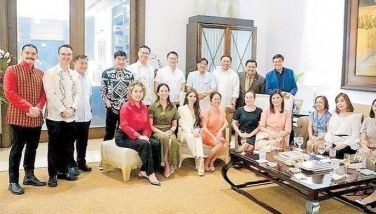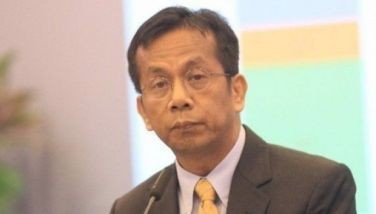President Marcos forms human rights ‘super body’

MANILA, Philippines — A “super body” has been formed by President Marcos to further enhance human rights protection in the country, Malacañang announced on Sunday.
Under Administrative Order 22, a “Special Committee on Human Rights Coordination” is tasked to sustain initiatives and accomplishments under the United Nations for the Joint Program on human rights (UNJP) in the areas of law enforcement, criminal justice and policymaking.
The three-year UNJP was developed to implement Human Rights Council resolution 45/33, adopted on Oct. 7, 2020, which outlined specific areas for capacity-building and technical cooperation for the promotion and protection of human rights in the Philippines. It will expire on July 31.
“It is imperative to sustain and enhance the accomplishments under the UNJP, which is set to expire on July 31, 2024, through institutionalization of a robust multi-stakeholder process for the promotion and protection of human rights in the Philippines,” the President said.
Administrative Order 22 was signed by Executive Secretary Lucas Bersamin on May 8. It will take effect immediately upon its publication in the Official Gazette, or a newspaper of general circulation.
The special committee will be chaired by the executive secretary and co-chaired by the justice secretary, with the secretaries of foreign affairs and the interior and local government serving as members.
In 1988, the Philippines established the Presidential Human Rights Committee (PHRC) to comply with its obligations as a state party to the Universal Declaration of Human Rights, International Covenant on Economic, Social and Cultural Rights, and International Covenant on Civil and Political Rights.
The PHRC was also tasked to formulate a National Human Rights Action Plan.
Under Marcos’ AO 22, the PHRC Secretariat will serve as the secretariat of the special committee.
Duties and functions of the special committee include strengthening existing mechanisms in the areas of “investigation and accountability; data-gathering on alleged human rights violations by law enforcement agencies; expanding civic space and engagement with private sector; national mechanisms for implementation, reporting, and follow-up; human rights-based approach towards drug control; and human rights-based approach towards counterterrorism.”
The special committee is also tasked to “monitor and ensure effective implementation of government policies and programs aimed at upholding and protecting human rights of persons deprived of liberty, particularly in guaranteeing that no one is subjected to torture and other cruel, inhumane or degrading treatment or punishment.”
The funding for the initial implementation of the order will be charged against the current and available appropriations of the special committee’s member-agencies. Thereafter, the funding for the continued implementation of the order will be included in the budget proposals of the member-agencies.
Last month, human rights organization Amnesty International (AI) reported that extrajudicial killings (EJK) continue under the Marcos administration, contrary to claims that the practice has stopped.
At the launch of AI’s State of the World’s Human Rights, AI Philippines section director Butch Olano said more than 600 people were killed in the first 19 months of the Marcos administration.
“These were documented and these show that the EJKs continue and are unabated,” Olano said.
Marcos has repeatedly said his administration has changed the concept of the anti-drug campaign from his predecessor – Rodrigo Duterte’s controversial “Oplan Tokhang” – to preventing the use of banned substances and rehabilitating drug addicts.
Duterte has been accused by the International Criminal Court of committing crimes against humanity over the deaths tied to his drug war.
More than 6,000 drug suspects have been killed in the previous administration’s drug war based on government data. However, human rights groups said the number of dead could be several times higher.
Just a propaganda arm – rights group
While it “sounds fantastic” on paper, Marcos’ human rights “super body” is still not expected to address the perennial issues hounding the Philippines, an international human rights organization said.
Carlos Conde, senior researcher at the Asia Division of New York-based Human Rights Watch, said the special committee on human rights coordination is not an accountability mechanism per se, unlike the CHR or the United Nations Human Rights Committee.
“My fear is that it will serve mainly as a propaganda arm to defend government against allegations of rights abuses,” said Conde.
“It has no UN or CSO (civil society organization) participation and is going to be led by the Presidential Committee on Human Rights, which has zero record on accountability for rights abuses. Indeed, that committee has served not only as apologist for government on rights abuses – it has, in the past, sought to discredit and undermine rights defenders in (the Philippines) and in other countries,” he added.
Conde also noted that some of the committee members are government agencies with a poor human rights record.
If Marcos is really serious about human rights, Conde said he should ensure that the CHR remains independent, and that the government fully abides by domestic and international rights commitments.
Marcos, he added, should protect rights defenders and keep the democratic space open.
“He can do this, for a start, by ending the policy of red-tagging (and holding) perpetrators of rights abuses to account,” added Conde.
Human rights group Karapatan condemned the Marcos administration’s newly established committee, claiming that it is seen as “a smokescreen for human rights abuses.”
This move, Karapatan said, has been met with skepticism, seen as a mere attempt to “camouflage the dire human rights situation prevailing in the country.”
“Touted as a new mechanism that comes after the UN Joint Program on human rights in the Philippines, Marcos Jr.’s human rights coordinating council is viewed as a tactic to evade accountability for the human rights violations committed during the previous and the current regimes,” Karapatan said in a statement yesterday. — Janvic Mateo, Mark Ernest Villeza
- Latest
- Trending



























